Tuesday, August 15, 2023. Annette’s News Roundup.
I think the Roundup makes people feel not so alone.
To read an article excerpted in this Roundup, click on its blue title. Each “blue” article is hyperlinked so you can read the whole article.
Please feel free to share.
Invite at least one other person to subscribe today! buttondown.email/AnnettesNewsRoundup
_____________________
Last night’s Indictment in Georgia.
These are the notes sent by Joyce Vance, MSNBC legal expert, at 8:44 PM.
While there are reports the grand jury is working late, there is no indictment yet from Fulton County. But there was an intriguing, apparently accidental, leak. The clerk’s office briefly posted what appears to be a normal grand jury scheduling document, reflecting the charges prosecutors would ask a grand jury to return against a defendant. The defendant is Donald Trump. The document shows RICO charges along with a series of conspiracies, a charge of soliciting a public official to violate his oath of office, and three charges involving false documents.
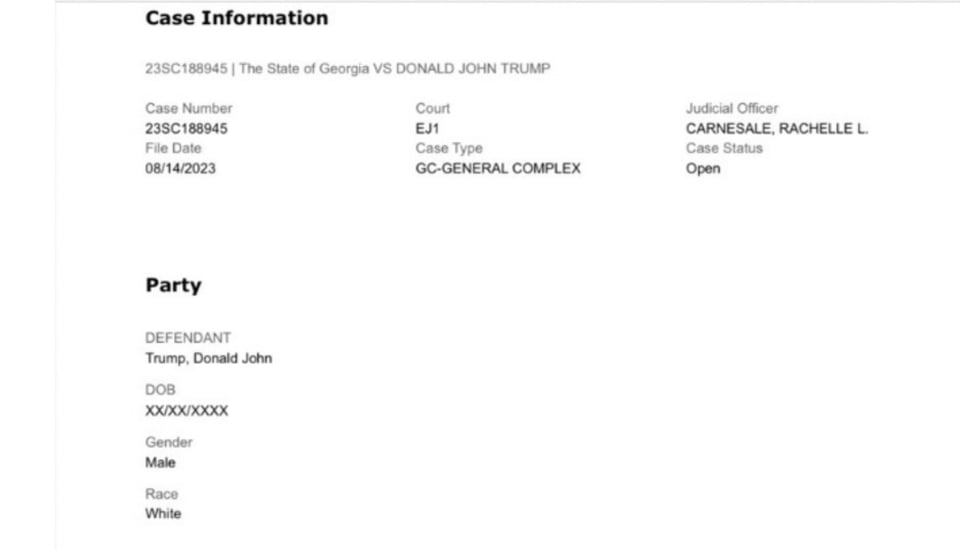
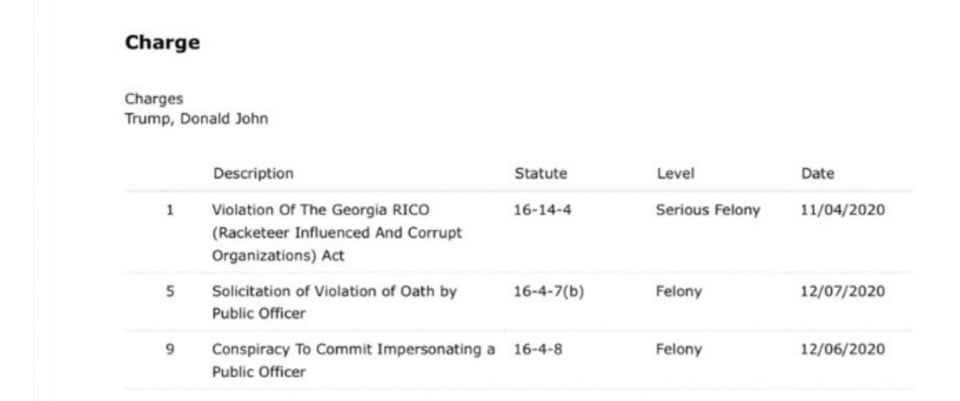
 More news came out at 11 PM. 41 Felonies and 19 defendants, all functioning under a criminal enterprise, led by Donald John Trump, were then charged under the RICO Act in Georgia.
More news came out at 11 PM. 41 Felonies and 19 defendants, all functioning under a criminal enterprise, led by Donald John Trump, were then charged under the RICO Act in Georgia.
The document is 97 pages long and Trump is named 193 times. The indictment in Georgia is now the fourth felony case filed against Trump.
Fulton County District Attorney Fani Willis said that Georgia Rico law has mandatory sentencing without probation.
See you tomorrow with more information.
_____________________
The First Amendment and Trump.
Why Trump may not be incarcerated pre-verdict in the January 6 case.
Is Trump Daring a Judge to Jail Him?
The impossible task of containing Donald Trump.
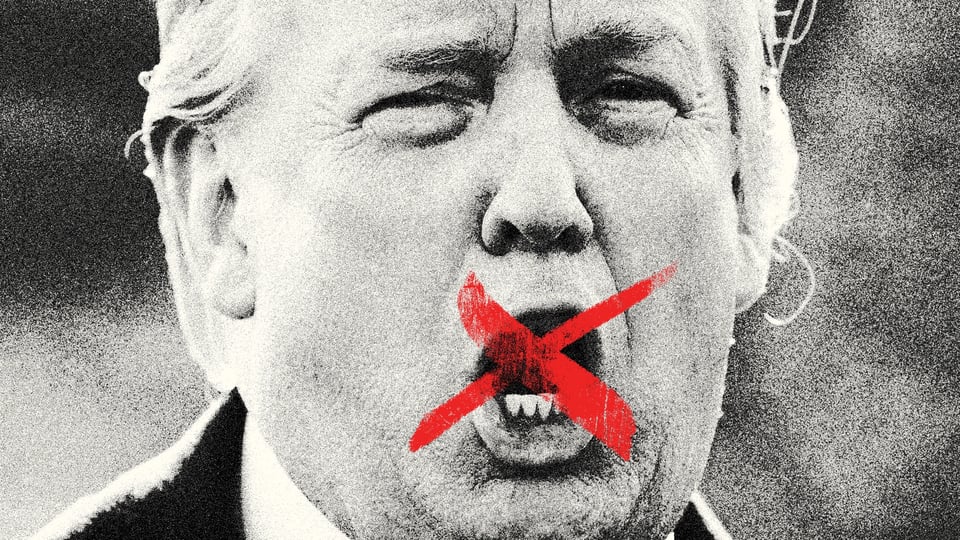
When Donald Trump appeared last week in a Washington, D.C., courtroom for his arraignment on federal election charges, the presiding judge gave the former president a few simple instructions for staying out of jail while he awaited trial.
Trump could not talk to potential witnesses about the case except through lawyers, Magistrate Judge Moxila Upadhyaya told him, and he could not commit a crime on the local, state, or federal level. Both are standard directives to defendants. But then Upadhyaya added a warning that seemed tailored a bit more specifically to the blustery politician standing before her: “I want to remind you,” the judge said, “it is a crime to intimidate a witness or retaliate against anyone for providing information about your case to the prosecution, or otherwise obstruct justice.”
When Upadhyaya asked Trump if he understood, he nodded. Fewer than 24 hours later, Trump appeared to flout that very warning—in its spirit if not its letter—by threatening his would-be foes in an all-caps post on Truth Social: “IF YOU GO AFTER ME, I’M COMING AFTER YOU!” Over the following week, he attacked a potential witness in the case, former Vice President Mike Pence (“delusional”); Special Counsel Jack Smith (“deranged”); and the federal judge assigned to oversee his case, Tanya Chutkan, an appointee of former President Barack Obama (Smith’s “number one draft pick,” in Trump’s words).
Trump’s screeds highlight a challenge that will now fall to Chutkan to confront: constraining a defendant who’s both a former president and a leading candidate to take the White House—and who seems bent on making a mockery of his legal process.
“She’s in a tight spot,” Barbara McQuade, a former U.S. attorney in Michigan, says of Chutkan. Conceivably, the judge could find Trump in contempt of court and toss him in jail for violating the terms of his pretrial release. But even though in theory Trump should be treated like any other defendant, former prosecutors told me that he was exceedingly unlikely to go to prison over his pretrial statements. And Trump probably knows it. (Whether Trump will go to prison if he is convicted is another hotly debatedmatter.)
“I’m sure she would be very reluctant to do that, in light of the fact that he’s running for president,” McQuade told me. “So I think as a result, he has a very long leash, and I think he will simply dare her to revoke [his freedom] by saying the most outrageous things he can.”
At a pretrial hearing today, Chutkan issued her first warnings to Trump’s lawyers about their client, according to reporting by Steven Portnoy of ABC News and Kyle Cheney of Politico. “Mr. Trump, like every American, has a First Amendment right to free speech,” she said. “But that right is not absolute.” She said Trump’s presidential candidacy would not factor into her decisions, and she rebuffed suggestions by a Trump lawyer, John Lauro, that the former president had a right to respond to his political opponents in the heat of a campaign. “He’s a criminal defendant,” she reminded him. “He’s going to have restrictions like every single other defendant.”
Chutkan said she would be scrutinizing Trump’s words carefully, and she concluded with what she called “a general word of caution”: “Even arguably ambiguous statements from parties or their counsel,” the judge said, “can threaten the process.” She added: “I will take whatever measures are necessary to safeguard the integrity of these proceedings.”
Chutkan had called the hearing to determine whether to bar Trump and his lawyers from publicly disclosing evidence provided to them by prosecutors—a standard part of the pretrial process. The evidence includes millions of pages of documents and transcribed witness interviews from a year-long investigation, and the government argued that Trump or his lawyers could undermine the process by making them public before the trial. Despite her warnings to Trump’s team, she sided with the defense’s request to narrow the restrictions on what they could disclose, and she did not add other constraints on what he could say about the case.
Yet the effect of Chutkan’s courtroom comments was to put Trump on notice. If he continues to flout judicial warnings, she could place a more formal gag order on him, the ex-prosecutors said. And if he ignores that directive, she would likely issue additional warnings before considering a criminal-contempt citation. A further escalation, McQuade said, would be to hold a hearing and order Trump to show cause for why he should not be held in contempt. “Maybe she gives him a warning, and she gives him another chance and another chance, but eventually, her biggest hammer” is to send him to jail.
Judges have sanctioned high-profile defendants in other cases recently. In 2019, the Trump ally Roger Stone was barred from posting on major social-media platforms after Judge Amy Berman Jackson ruled that he had violated a gag order she had issued. (Stone did honor this directive.) The Trump foe Michael Avenatti, who represented Stormy Daniels in her case against Trump and briefly considered challenging him for the presidency, was jailed shortly before his trial on extortion charges after prosecutors accused him of disregarding financial terms of his bail. “He was just scooped up and thrown into solitary,” one of his former lawyers, E. Danya Perry, told me. She said that Avenatti was thrown into the same jail cell that had held El Chapo, the Mexican drug lord. (Avenatti later claimed that his treatment was payback ordered by then–Attorney General Bill Barr; the prison warden said he was placed in solitary confinement because of “serious concerns” about his safety, and Barr has called Avenatti’s accusation “ridiculous.”)
Neither Stone nor Avenatti, however, is as high-profile as Trump, arguably the most famous federal defendant in American history. And Perry doubts that Chutkan would imprison him before a trial. Trump has ignored warnings from judges overseeing the various civil cases brought against him over the years and has never faced tangible consequences. “He has done it so many times and he has managed to skate so many times that he certainly is emboldened,” Perry said.
Indeed, Trump has also suggested he would ignore a gag order from Chutkan. “I will talk about it. I will. They’re not taking away my First Amendment rights,” Trump told a campaign rally in New Hampshire on Wednesday.
Trump’s political motives for vilifying his prosecutors and once again portraying himself as the victim of a witch hunt are obvious: He’s trying to rile up his Republican base. Trump also seems to be executing something of a legal strategy in his public statements about the trial. He’s called Washington, D.C., “a filthy and crime-ridden embarrassment,” possibly reasoning that these remarks will force the court to agree to his request to shift the trial to a venue with a friendlier population of potential jurors, such as West Virginia.
That’s less likely to work, according to the former prosecutors I interviewed. “I’d be shocked to see that be successful,” Noah Bookbinder, a former federal prosecutor who heads the anti-corruption advocacy group Citizens for Responsibility and Ethics in Washington, told me. “It’s sort of like the old joke about the child who kills his mother and father and then asks for mercy because he’s an orphan. I just don’t see a court going for that.”
Trump’s attacks also present a problem for Smith, the special counsel. On one hand, prosecutors have a clear interest in ensuring that their witnesses do not feel intimidated; on the other, Smith could feel that trying to silence Trump would play into the former president’s victim narrative. Justice Department prosecutors alerted Chutkan to Trump’s “I’m coming after you” post in a court filing, and during today’s hearing they voiced concerns that if not restricted, Trump could disclose evidence to benefit his campaign. (A Trump spokesperson said the former president’s warning was “the definition of political speech,” and that it referred to “special interest groups and Super PACs” opposing his candidacy.) But Smith’s team did not ask Chutkan to fully gag Trump or even admonish him. “You see the prosecutors being very, very restrained,” Bookbinder said. “With a lot of defendants who were bad-mouthing the prosecutor and witnesses, they would have immediately gone in and asked for an order for the defendant to stop doing that.”
Bookbinder described the citation of Trump’s post as “a brushback pitch” by the government, a signal that they are watching the former president’s public statements closely. But like Chutkan, Smith might be reluctant to push the matter very far. Fighting with Trump over a gag order could distract from where the government wants to focus the case—on Trump’s alleged crimes—and it could indulge his desire to drag out the trial, Bookbinder noted. But the special counsel has to weigh those concerns against the possibility that an out-of-control defendant could jeopardize the safety of prosecutors and witnesses. “My strong suspicion is that Jack Smith doesn’t want to go there,” Bookbinder said. “I think at some point he may have little choice.” (Russell Berman,The Atlantic).
Here is historian Michael Beschloss on the same subject - how will Judge Chutkan keep Trump under control?
This is from Beschloss’s August 14th post, Judge Chutkan Will Not Tolerate More Crimes.
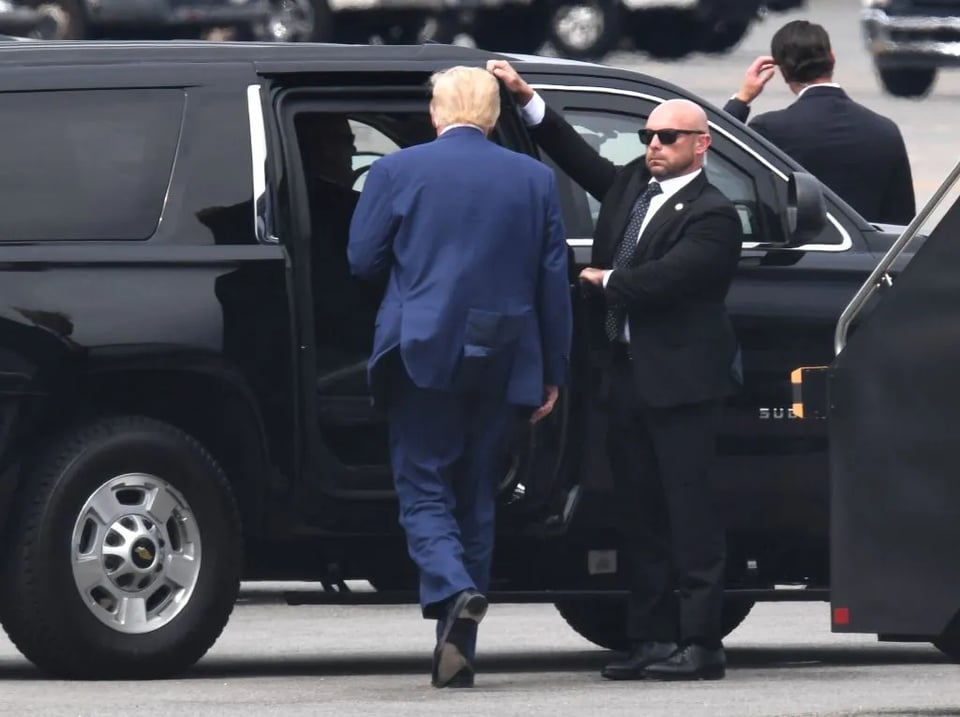
But I want to pause before the fast-breaking news propels us onward. In an encouraging hearing in federal district court on Friday, Washington, D.C.’s no-nonsense Judge Tanya S. Chutkan implemented a protective order to restrict what discovery materials Trump can make public. Refreshingly, that’s not all.
While Trump-appointed Florida Judge Aileen Cannon is once again finding ways to provide special favors for the ex-president in the Mar-a-Lago classified documents case, Judge Chutkan made clear Friday she won’t stand for Trump’s usual and dangerous flood of nonsense, lies and attacks. Chutkan laid out an intriguing plan to raise the stakes for the indicted one’s typical refusal to follow the law.
Noting that it will not be easy to avoid a “carnival atmosphere,” she focused in on defendant Trump’s public statements and said she would be scrutinizing “very carefully” what he says for signs that could be viewed as witness intimidation, tainting a jury pool or obstruction of justice.
“The fact that he is running a political campaign currently has to yield to the administration of justice,” Chutkan said. “And if that means he can't say exactly what he wants to say in a political speech, that is just how it's going to have to be.”
And how might she respond to “inflammatory” comments about the case? The more it happens, “the greater the urgency will be that we proceed to trial quickly.” And more, she warned, “even ambiguous statements from either party or counsel...can threaten the process.”
This, of course, is the last thing that Trump, always focused on delaying legal proceedings, wants. But that doesn’t mean he’s capable of keeping his mouth shut, literally or figuratively.
As Chutkan noted Friday, “The defense has reiterated at length Mr. Trump's First Amendment right to speak about this case and any evidence in it.” She acknowledged he is permitted the same rights as any criminal defendant—but nothing more.
“It is a bedrock principle of the judicial process in this country that legal trials are not like elections, to be won through the use of meeting hall, the radio and newspaper,” Chutkan said, adding, “Mr. Trump, like any American, has a right to free speech. But that right is not absolute.”
And what about the role of a trial and the imminent discovery phase—as well as the Justice Department itself—in interfering and undermining the beleaguered candidate’s presidential campaign, as his defense attorney John Lauro suggested to the judge? Judge Chutkan wasn’t having it.
“I see a desire to move this case along,” she said, noting that she has not seen “any evidence that this is politically motivated.” Moreover, “the existence of a political campaign is not going to have a bearing” on how she does her work.
In short, she said plainly, “He is a criminal defendant. He is going to have constraints the same as any defendant. This case is going to proceed in a normal order.”
“Normal order” may be the last thing we can anticipate whenever it concerns this malignant former White House occupant who thinks the law does not apply to him. In fact, he may have already shown off his refusal to hear what the judge said (assuming his defense counsel even shared with him the risks his flagrant behavior poses).
Yesterday, he reposted on Truth Social a message from a right-wing activist attacking the judge and including her photograph: “Judge Tanya Chutkan—an Obama leftwing activist judge in DC, whose husband also got appointed by Obama as a DC judge—openly admitted she’s running election interference against Trump.”
I don’t know how Judge Chutkan will view this reposting from someone else. But it sure reads like an “inflammatory” statement to me, one that can interfere with “normal order” and the “administration of justice.”
This may not be the action that leads Chutkan to pursue a gag order or take him into custody—accelerants that I’m sure she’s reluctant to impose. But it may be additional kindling to speed up the proceedings and get this man to trial. If so, that is good news.
_____________________
More violent threats from Fake Trump Electors in Michigan.
MAGA and their leader make one threat after another.
Keep in mind that no one showed up when their god himself called for protests at each of his indictments.
GOP lawmaker warns of ‘civil war’ at fundraiser for indicted Trump electors
 Meshawn Maddock and state Rep. Matt Maddock, seen here in 2022, hosted a fundraiser at their home this month to raise legal funds for the 16 Trump electors charged criminally in the state, a group that includes Meshawn.
Meshawn Maddock and state Rep. Matt Maddock, seen here in 2022, hosted a fundraiser at their home this month to raise legal funds for the 16 Trump electors charged criminally in the state, a group that includes Meshawn.
Michigan state Rep. Matt Maddock (R) warned supporters at a recent fundraiser at his home that a “civil war” would break out or that people would get shot if the government continued to target conservatives, according to audio of the event obtained by the Messenger, which first reported the remarks.
Maddock, whose wife was one of 16 “fake electors” charged with felony crimes in Michigan last month, told the crowd that it had been a “difficult” time for them recently. The event — billed as the “Free The 16 Electors Poolside Party!” — was held at the Maddocks’ home to raise legal defense funds for the fake electors, according to a copy of the invitation.
“If the government continues to weaponize these departments against conservatives, and the citizens and the taxpayers, what’s going to happen to this country? Does anyone have any idea, if this doesn’t stop?” Maddock is heard asking in the recording.
His question prompted several responses from the audience, each one waved off by Maddock as not the answer he had in mind.
“Someone’s going to get so pissed off, they’re going to shoot someone,” Maddock continued, according to the recording. “Or we’re going have a civil war or some sort of revolution. That’s where this is going. And when that happens, we’re going to get squashed.”
Many Republicans — including former president Donald Trump — have accused Democrats of “weaponizing” the government for handing down consequences to those who tried to overturn 2020 election results or who participated in the Jan. 6, 2021, attack on the U.S. Capitol, in which a pro-Trump mob sought to stop the certification of Joe Biden’s victory.
Maddock’s rhetoric, however, was especially inflammatory. His wife, Meshawn Maddock, is one of 16 Republicans who were charged with forgery and other felonies last month by Michigan Attorney General Dana Nessel, the first and so far only criminal prosecution against Trump electors. At the fundraiser, Matt Maddock compared prosecuting Trump electors to Nazis’ attempts to subdue Jewish people before leading them into gas chambers during the Holocaust.
“They want to make damn sure that anyone who questions the election or disputes the election in 2024 is threatened by what they’re doing to our electors and other people throughout this nation — that you will not say anything,” Matt Maddock told the crowd. “You are going to shut the eff up and you are going to walk into that gas chamber. That’s what they want, because that’s what’s coming for us.”
A judge this week barred Meshawn Maddock from traveling to Missouri next week to attend a conference put on by MyPillow CEO Mike Lindell, who for years has promoted false claims about elections. In a subsequent Facebook post, Meshawn Maddock, who was formerly co-chair of the Michigan Republican Party, was defiant.
“Does our Attorney General think that punishing me by refusing to let me attend the Mike Lindell Summit will stop me from talking about stolen elections? Not a chance,” she wrote.
“For me it shows the political nature of the entire case,” said Nicholas Somberg, the attorney for Meshawn Maddock.
Somberg added that Maddock did not do anything wrong and would fight the charges against her. “There was no fraud,” he said. “It’s all free speech.”
At one point at the fundraising event, Meshawn Maddock was invited up to the microphone to be “honored for being an elector.” There, she was more reticent, only noting that there were other Trump electors at the party she did not want to “out.” Matt Maddock’s invocation of gas chambers at the pool party also is not the first time Michigan Republicans have drawn contentious comparisons to the Holocaust. Earlier this year, the Michigan Republican Party compared gun laws proposed in the state legislature to restrictions imposed in Nazi Germany, in a social media post that drew bipartisan condemnation. Full article here.
_____________________
Learning what parity and fairness mean.
Women farmers were discriminated against. Now they’re owed compensation.
A push led by House Democratic women for ranchers and farmers to receive settlement money comes as an October 31 deadline looms.

Democratic women lawmakers are pressing the U.S. Department of Agriculture (USDA) to make sure discrimination settlement funds reach women farmers before time runs out.
The Inflation Reduction Act (IRA), a Democratic economic and climate investment bill passed by Congress and signed into law by President Joe Biden in August 2022, included a $2.2 billion fund to compensate ranchers and farmers who had previously experienced discrimination in USDA lending programs. The deadline to apply for those settlement funds is October 31.
“As a longtime farmer myself, I know the additional challenges women face to get their job done; to then be denied from lending opportunities simply because of their sex or marital status is not just an added obstacle, but a direct assault on equality,” said Rep. Chellie Pingree of Maine, an organic farmer of more than 50 years who also serves on the House Agriculture Committee.
In a letter sent to Agriculture Secretary Tom Vilsack and first shared with The 19th, Pingree, along with Reps. Lois Frankel of Florida and Jahana Hayes of Connecticut, said women farmers have faced systemic barriers to accessing both land and credit.
They’ve also faced barriers when trying to take advantage of past efforts to make up for discrimination: The federal government agreed to pay over $1.3 billion in settlement funds after groups of women farmers and Latinx farmers separately sued USDA for discrimination in the 2000s, the letter noted. But an inspector general report found that only a few thousand claimants received settlement funds and many more were dismissed due to technical errors.
“Money alone cannot make up for the life-long impacts of discrimination. Nevertheless, USDA cannot repeat the mistakes of past settlement processes that have left tens of thousands without recompense due to technicalities,” the letter said. “We urge USDA to contact the women who had previously submitted discrimination claims and provide targeted outreach to additional women who have experienced discrimination since 2000. We also ask USDA to share their outreach strategy with us.”
The push to compensate farmers who have experienced discrimination also comes as women make up a growing share of farmers in the United States. The USDA’s 2017 Census of Agriculture found that since 2012, their numbers had risen 27 percent to 1.2 million, or 36 percent of producers in the United States. Women-operated farms accounted for 38 percent of agricultural sales and 43 percent of farmland in 2017.
Women farmers, the survey found, were younger, more likely to be beginner farmers and more likely to live on the farm they operated than men farmers.
For decades, too many farmers have faced discrimination in accessing the USDA farm loan program — and we know that some women were told they wouldn’t qualify without a husband or because they couldn’t do the physical labor,” Frankel, chair of the House Democratic Women’s Caucus, said in a statement to The 19th.
“Now, the USDA needs to make sure farmers who have faced discrimination, including many women, know about this opportunity, especially those who were rejected in the past simply because of a mistake in their paperwork,” she added.
The discrimination settlement funds in the IRA represented another step in the USDA’s efforts to repair its complicated and fraught relationships with farmers of color, and Black farmers in particular. A 2022 study found that Black farmers lost $326 billion in land value over the course of the 20th century due to forced land sales and systematic lending discrimination, including by USDA.
The disparities in lending extend to today. A February NPR analysis found that in 2022, USDA granted direct loans to just 36 percent of Black farmers who applied compared with 72 of White farmers. The agency rejected 16 percent of Black applicants but just 4 percent of White applicants. That was more than 20 years after the agency had reached a $1 billion settlement with Black farmers in the Pigford v. Glickman case, a class-action discrimination lawsuit. But as with the settlements for women and Latinx farmers, many farmers in this case said they faced difficulties accessing the funds.
In the 2021 American Rescue Plan, congressional Democrats established a landmark $5 billion program aimed at repairing historic discrimination against farmers of color with loan forgiveness, grants and training, among other forms of aid.
Black farmers and advocates celebrated the move as a powerful step and investment toward repairing historic wrongs. But the initiative quickly became stalled by multiple lawsuits from White farmers who claimed it discriminated on the basis of race, and Black farmers were left in limbo.
Congressional Democrats rescinded the appropriation for the program in the IRA, replacing it with the $2.2 billion in discrimination settlement funds and an additional $3.1 billion to aid disadvantaged farmers, including those categorized as “economically distressed,” a race-neutral designation that also includes White farmers. (The 19th News).
_____________________
A Climate Change win. 49 States to go.
Montana judge hands historic win to young plaintiffs in climate change case.
 View of an extension of Denbury Inc's Greencore carbon pipeline which connects to a pump station, in Montana, U.S., 2021.
View of an extension of Denbury Inc's Greencore carbon pipeline which connects to a pump station, in Montana, U.S., 2021.
Aug 14 (Reuters) - Montana is violating the rights of young people with policies that prohibit the state from considering climate change effects when it reviews coal mining, natural gas extraction and other fossil fuel projects, a state judge said Monday.
The decision by Judge Kathy Seeley in Helena marked a major victory in the first youth-led climate case to reach trial in the U.S. and could influence similar cases nationwide.
In her ruling, Seeley said Montana’s greenhouse gas emissions have been proven to be "a substantial factor" in causing climate impacts to Montana's environment, harming the young plaintiffs.
The 16 plaintiffs sued Montana in 2020, when they were ages 2 to 18, claiming the state's permitting of projects like coal and natural gas production exacerbated the climate crisis, despite a 1972 amendment to the Montana constitution requiring the state to protect and improve the environment.
Seeley said the plaintiffs have a “fundamental constitutional right to a clean and healthful environment." She said policies that prohibit state agencies from considering climate and emissions impacts when approving fossil fuel projects are unconstitutional.
In a June trial, the youths had argued that despite its sparse population, Montana is responsible for an outsized share of global emissions. The state is a major producer of coal, oil and gas that is shipped elsewhere and is also the home of pipelines and other infrastructure needed to ship those fuels.
Several of the young plaintiffs took the stand during the trial and detailed how climate change affected their lives.
Lead plaintiff Rikki Held, 22, testified that droughts have left "skinny cows and dead cattle" on her family's ranch in eastern Montana and wildfires have made ash fall from the sky.
The state argued that climate policy should not be set by courts and the plaintiffs hadn't proved that the global crisis could be attributed to Montana's relatively small emissions.
A spokesperson for the Montana attorney general's office on Monday called the ruling "absurd," and Seeley an "ideological judge who bent over backward to allow the case to move forward." The state plans on appealing, the spokesperson said.
Julia Olson, an attorney for Our Children's Trust, which represented the young people, called the decision a "huge win for Montana" and said similar decisions were likely to follow in different states.
Michael Gerrard, director of the Sabin Center for Climate Change Law at Columbia Law School, said Seeley's findings, including that climate change is a serious health and environmental threat, could "become an inspiration" for lawsuits in states with similar constitutional provisions and make it more difficult for defendants to wave away climate concerns.
It is "the strongest decision on climate change ever issued by any court," he said.
The case was one of several youth-led climate cases in the U.S. A case by young people in Hawaii against the state's Department of Transportation is scheduled to go to trial next year, making it the second in the country to do so. A case against the U.S. government was revived in June after being dismissed by the 9th U.S. Circuit Court of Appeals in 2020. (Reuters).
_____________________
If you are sick of hearing media amplification of the name Hunter Biden, you may be pleased to listen to Jamie Raskin instead. Touch below. 👇
Touch to watch. Do you think The Times will cover this?
Jamie Raskin makes a big announcement, "We're going to release a report about all of the foreign government emoluments. Millions of dollars that Donald Trump pocketed from the hotels, at the golf courses, through business deals when he was president, and that his family got." pic.twitter.com/Ab5yjAPt0P
— Sarah Reese Jones (@PoliticusSarah) August 13, 2023
Indicting Hunter Biden Would Make Him Formidable Republican Candidate.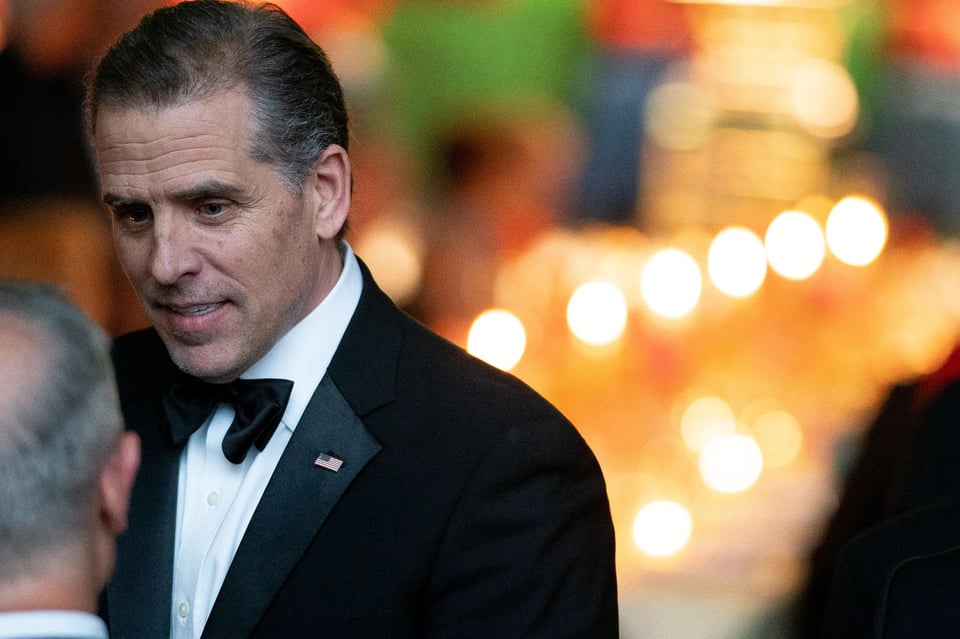
WASHINGTON (The Borowitz Report)—An indictment of Hunter Biden would immediately catapult him to the top tier of the Republican Presidential field, a new poll of likely G.O.P. voters indicates.
The poll reveals that, if indicted by the just-appointed special counsel, the President’s son would be in a virtual dead heat with the Republican front-runner, Donald J. Trump.
Davis Logsdon, who supervised the poll for the University of Minnesota, noted that Governor Ron DeSantis lags far behind, in third place, because of G.O.P. voters’ queasiness about supporting a candidate who has no indictments.
“If DeSantis goes into the Iowa caucuses unindicted, he’s done,” the pollster said.
Lashing out at the poll, Trump claimed that the “Biden Justice Department” was trying to “rig an indictment for Hunter” so that he could steal the Republican nomination.
“Hunter has done nothing to earn an indictment,” Trump said. “I’ve worked long and hard for all of my indictments. This should never be allowed to happen in this country.” (Yes, Borowitz, The New Yorker)
_____________________
 As we awaited the indictments from Georgia.
As we awaited the indictments from Georgia.